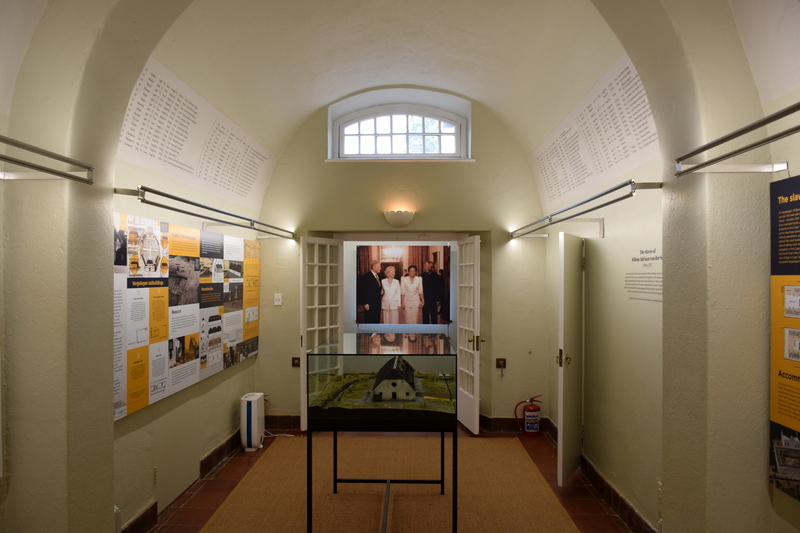Vergelegen is a wine estate, founded in 1700 and presently owned by Anglo-American subsidy AmFarms. As with the majority of South African wine farms of such a vintage, its early labour force rested on enslavement. Historical interpretation on the estate can be traced to an archaeological dig conducted by a team of academics from the University of Cape Town between 1990 and 1992. At a time of burgeoning scholarly enquiry into Cape slavery, this work excavated the former slave lodge on Vergelgen with the explicit intention of unearthing items which might hint towards the existence of slave culture. A number of personal items including coins and buttons were discovered, whilst the most significant find was of the skeletal remains of an enslaved woman who was affectionately named ‘Flora’ by estate staff.
The results of the archaeological work were displayed in the estate’s foyer together with contextual information. This made Vergelegen probably the first location in South Africa to mount a detailed exhibition relating to Cape slavery. The existence of the archaeological objects can be considered particularly significant, given that few tangible links with Cape slavery exist in museum collections. A second exhibition focussing on Vergelegen’s historical owners was developed several years later in the former manor house, and both exhibitions were subsequently amalgamated prior to being refreshed in 2016.
Presently, the names of people known to have been enslaved on Vergelegen are listed on the wall/ceiling of the first gallery, whilst the origins of enslaved people and their role on the estate are made clear. The objects unearthed during the early 1990s are displayed as tangible links with a past described by text. Additional historical context focuses on wine farming and the early Cape economy, historical estate owners, and notable visitors to Vergelegen.
There aren't any related items yet. Why not view everything in Legacies on Display: Slavery in Museums?
